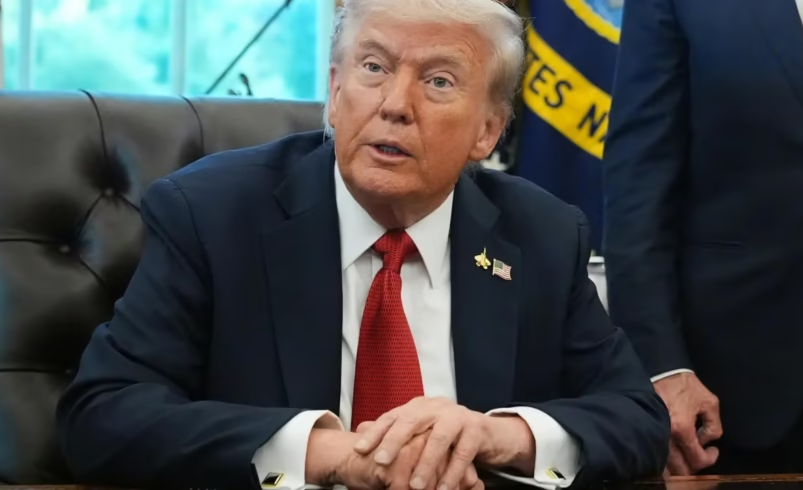Trump considers invoking Insurrection Act amid deployment debate
- October 7, 2025
- 0

President Donald Trump indicated that he might turn to the Insurrection Act to authorize additional troop deployments in states governed by Democrats if local or judicial resistance prevents the use of the National Guard. The statement has reignited discussion over a rarely invoked federal law that grants the president authority to deploy military forces within U.S. borders under specific circumstances.
During recent comments, Trump said he would consider invoking the Insurrection Act “if necessary,” emphasizing that his administration would not hesitate to act should courts or local officials block efforts to send in the National Guard. His remarks reflect growing tensions between federal and state authorities over how best to manage domestic unrest and maintain public order.
The Insurrection Act, first enacted in 1807, empowers a sitting president to deploy active-duty military forces within the United States when state governments are unable or unwilling to enforce federal law or protect citizens’ rights. Although it remains part of U.S. law, its use has been exceedingly rare in modern times due to concerns about federal overreach and civil liberties.
The last invocation of the Insurrection Act occurred during the 1992 Los Angeles riots, when then-President George H.W. Bush authorized federal troops to restore order following widespread violence and property damage. Before that, it had been used during periods of intense civil unrest and desegregation conflicts in the mid-20th century. These historical examples highlight how extraordinary circumstances typically precede its application.
If invoked, the act would give Trump broad authority to deploy military personnel domestically without a state governor’s consent, provided certain legal thresholds are met. Legal scholars note that while presidents have this power, its exercise often invites scrutiny from Congress and the courts due to its potential impact on state sovereignty and civilian governance. The debate surrounding such a move underscores ongoing questions about executive power and constitutional limits.
State officials from Democratic-led regions have previously expressed opposition to federal intervention without their approval, arguing that local authorities are best positioned to handle security matters within their jurisdictions. Any attempt by Washington to override those decisions could deepen political divisions and prompt legal challenges testing the boundaries of presidential authority under existing law.
The possibility of invoking the Insurrection Act places renewed attention on a centuries-old statute designed for exceptional crises but seldom used in contemporary governance. Whether such action will be taken remains uncertain, but Trump’s comments have already sparked renewed debate about how far executive power can extend when public order is at stake.